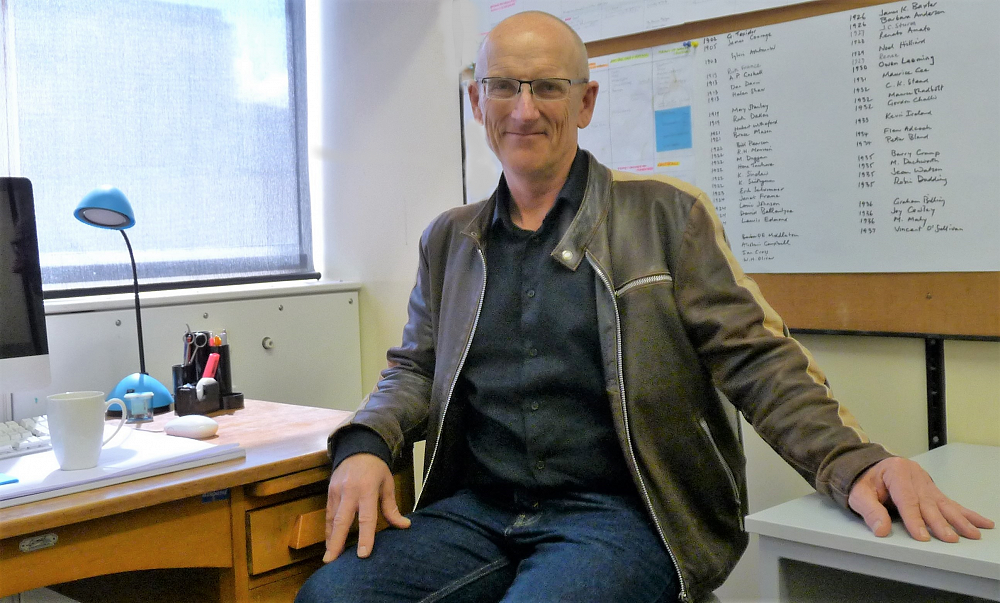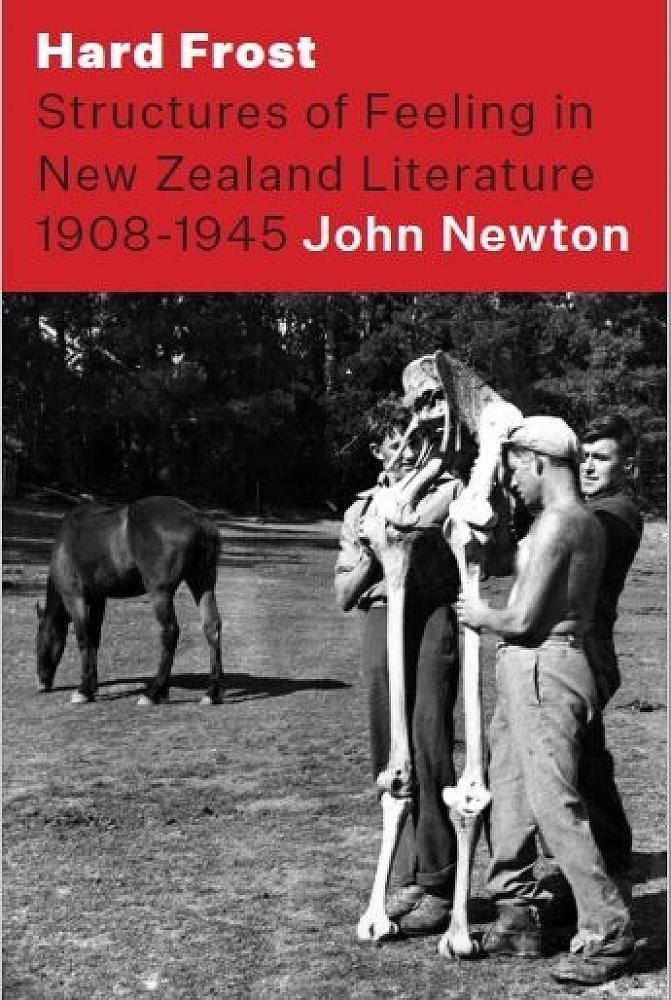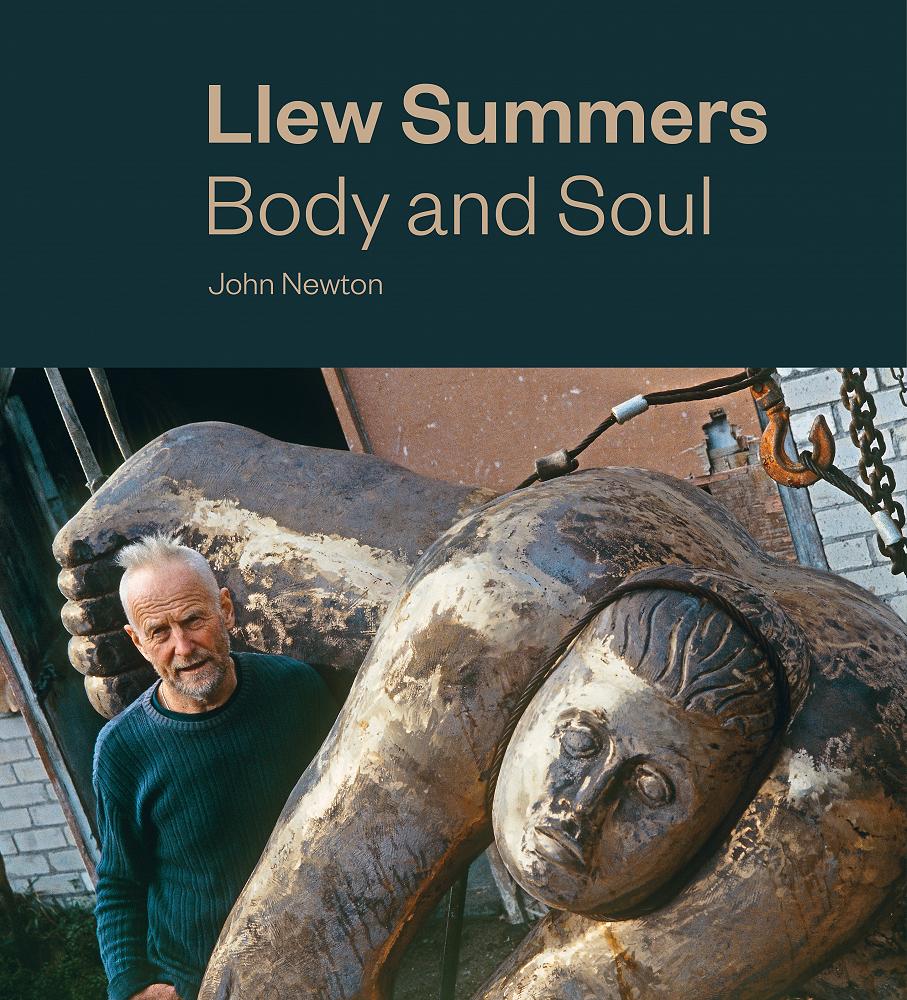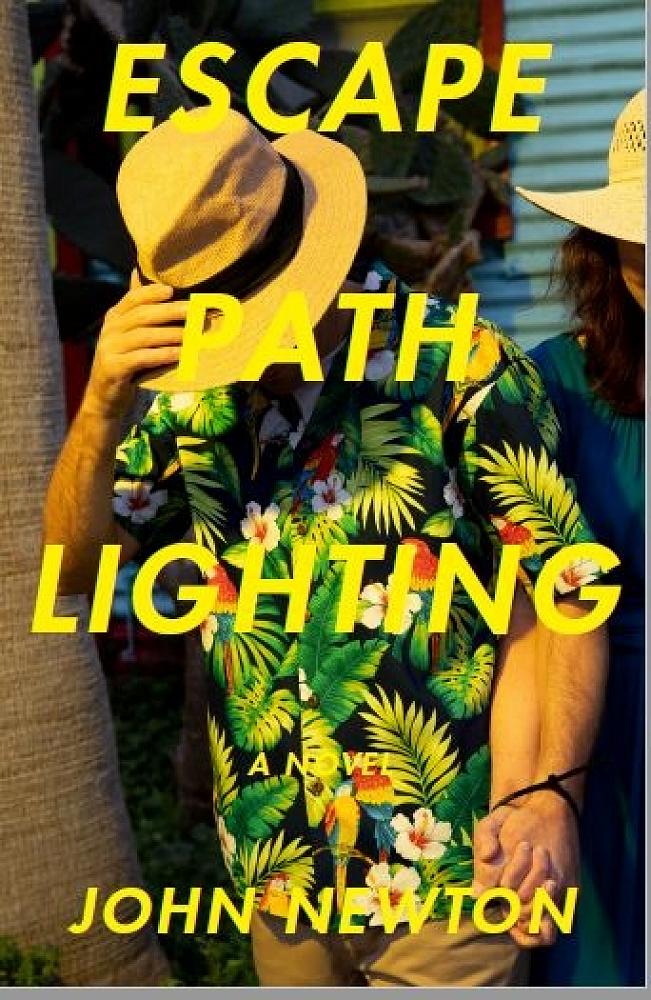
In Conversation - John Newton
Robert Burns Fellow for 2020 is poet and literary historian John Newton. Collection Specialist Jackie McMillan caught up with him on the University of Otago campus.
John Newton has published three poetry collections and two works about New Zealand's literary history. This year he is the 2020 Robert Burns Fellow and is working on the follow up to Hard Frost: Structures of Feeling in New Zealand Literature 1908-1945, taking his history of our country's literature through to the late 1960s.

This year also sees the publication of two quite different books by him: Escape Path Lighting, a satirical novel in verse set on a fictional New Zealand island not unlike Waiheke; and his record of the life and work of sculptor Llew Summers (1947-2019), Llew Summers: Body and Soul. John Newton is also a judge of the 2020 Dunedin UNESCO City of Literature Robert Burns Poetry Competion.
I asked John some questions about his work and time in Dunedin.
Q: How have you found being in a new city in such strange times?
A: The only problem I really had with lockdown is that I was late to the library on the last afternoon and I ran out of books to read. I'd just moved into a new house with two complete strangers when lockdown began, but thankfully we all got on really well. As a writer I was certainly better off than most people (I don't mind taking a work-from-bed day if I have to!) What has been curtailed are some of the public aspects of the fellowship, like the Otago Arts Fellows' welcome at the Hocken Library. So it’s taken me a while to get out and be seen, but I’m doing a fair few events in the next couple of months.
Q: You came to the fellowship with a project. Have you been able to stick to your plan?
A: Even during lockdown I was able to get on with it. When I ran out of books I was still able to access digitised issues of Landfall for the period I am working on, which was a bit of a lifesaver. So I'm on track as much as I'd expected to be. The project is the second instalment of my literary history, which I'm calling Where Exactly Are We?
(At this point John showed me a complex wall chart with dozens of writers' names on it, arranged chronologically from 1946 to the late 1960s, from when they were first published.)
Q: You are a poet who often writes about New Zealand's landscapes, as well as a literary historian. Has Dunedin's landscape and surroundings been calling out to you to write about it?
A: I tend to do one thing at a time, so when I have a project I just work on that project. And, sadly perhaps, I am not the kind of poet that sees something and immediately starts turning that into a poem, or gets moved to poetry by things that happen to me from day to day. But I love the Otago landscape. You could certainly say Otago has moved me to fish.
(This shouldn't be a surprise as one of John's poetry collections is Tales from the Angler's Eldorado. As a keen and true fisherman, John wasn't about to share the locations of any of his fishing spots.)
Q: Which poets inspired you to become a poet?
A: Denis Glover would be one of the biggest influences from among the mid-20th century New Zealand poets I'm working on now, and I read a lot of his poetry when I was very young. When I was at primary school our music teacher, who was Australian and into the bush poets like Henry Lawson and Banjo Paterson, would play us records of poets reading. That was how I first heard Glover. Barry Crump was a big early influence. When I was about six my mother gave me A Good Keen Man, and I just adored it (I’ve written about this in a poem called ‘Small Farmers’ from Family Songbook).
Q: Who are your favourite poets now?
A: I'm really enjoying Rhian Gallagher's latest book, Far-Flung. I'm also re-reading Alistair Campbell and remembering just how much I like his poetry. Probably the bulk of my current reading is reading for the project and reading friends' work. I tend to be pretty focussed in what I choose to read.
Q: How old were you were you when your wrote your first poem, and how old were you when you had your first poem published?
A: I remember it vividly, I was five years old. And then I wrote a lot as a teenager, and published in school magazines and so on. But my first real grown-up publication was in Landfall when I was twenty*. I guess I was very single-minded about poetry. I had a teacher who spotted my interest and seeded in my mind that I could make writing poetry my profession, so everything I've done has been a variation on this theme, including teaching at universities and literary research.
*For the curious that is 1979 - issue 132.
Q: You clearly got hooked on poetry when you were young, and your teachers played a role in building your interest. So, hypothetically, if New Zealand literature were to become a compulsory subject in schools, which poets would you recommend to students now?
A: If I were a teacher and was seriously trying to turn kids on to poetry, for secondary students I might suggest Hera Lindsay Bird. You also can't really go past Sam Hunt who has done so much to bring poetry to a non-specialist audience. Also poems by Wellington-based James Brown, whose poetry is really funny, and I might try something by Michele Leggott.
Q: As the Burns fellow have you read any poems by the bard himself?
A: I can’t say I’ve been reading Burns in the last few months. But a fellow poet in Christchurch, Erik Kennedy* hosts an annual Burns supper. Erik always reads Address to a Haggis - a vegan haggis in Erik's case. I'll of course be attending the Burns supper in Dunedin this coming January. But I'm not vegan myself - no one needs to fret about the menu.
* Erik is another poet John recommends to school aged kids, as his poetry is extremely humorous.
Q: So how is your Scots?
A: Negligible, not even a wee dram's worth.
Q: What will you be looking for in the entries in the 2020 Dunedin UNESCO City of Literature Robert Burns Poetry Competion?
A: All judges, I think, basically just look for something they like, and that could be anything. What I like most is to be surprised. I enjoy poems that tell me something that couldn't be said in prose.
Q: You have had two very different books come out in the last couple of months. Can you tell us a little about each of them and how they came about?
A: Llew Summers' is a household name in Christchurch, not just for his sculpture but for the person he was. I was living in a small house on his property, when he became ill. Though I'm not a biographer or an art writer, I came to realise that the one thing I could do to help him was to write his story. It was a whole new experience, but it was made a lot easier by the fact that his sister, Ursula, had been acting as Llew's archivist; she'd kept all the reviews of his work, and they had a detailed photographic record of it all. I found it appealing that he was a self-taught sculptor and he typified the kiwi can-do attitude. His work is designed with the public in mind; his sculptures are made to be touched and climbed over.

Published by Canterbury University Press, John's book Llew Summers: Body and Soul will ensure that Llew's life and work is remembered throughout the nation. Read more about John's book Llew Summers: Body and Soul in the Spinoff.
A: An entirely different project was my verse novel, Escape Path Lighting. I've always been interested in narrative poetry. It was particularly popular with writers when I was living in Australia, and of course storytelling in verse has been around a long time; you can think of Beowulf, or Chaucer, or the Aeneid. When I look back I probably read verse before I read prose. I loved Dr. Seuss, and memorised his Sleep Book* before I could actually read.
* John demonstrated that he still can recite Dr Seuss's Sleep Book, which as the selector of children's books for the library I was very happy to hear! It is clear he knows his audience.
Escape Path Lighting launches at UBS on November 3, 2020.

Q: What is next for you?
A: Well this current project will keep me busy for the next wee while. As to where exactly, that is yet to be worked out, either Christchurch, or Wellington. I'm a peripatetic poet.
If you'd like to hear John Newton, before he wanders off (on his next peripatetic adventure) there are a number of events in November where he will be talking or reciting.
November 3, 5.30 pm. Double book launch: Escape Path Lighting by John Newton and Fancy Dancing: New and Selected Poems 2004-2020 by Bernadette Hall. University Book Shop. RSVP to events@unibooks.co.nz
November 5, 6.30 pm. Ten Perspectives - National Poetry Day event. Dunningham Suite, 4th Floor, City Library. Tickets $5 - Bookable in person at Dunedin Public Libraries
November 10, 10.15 am. Toitu Tuesday Club. Where Exactly Are We? John Newton will talk about the work he is doing during the fellowship. Contact Toitu for further details.
November 27, 4 pm. English and Linguistics Friday Seminar. John Newton talks about the process of writing a novel in verse. Free - Open to members of the public. Room C, Castle Lecture theatre complex. For further details contact: paul.tankard@otago.ac.nz
